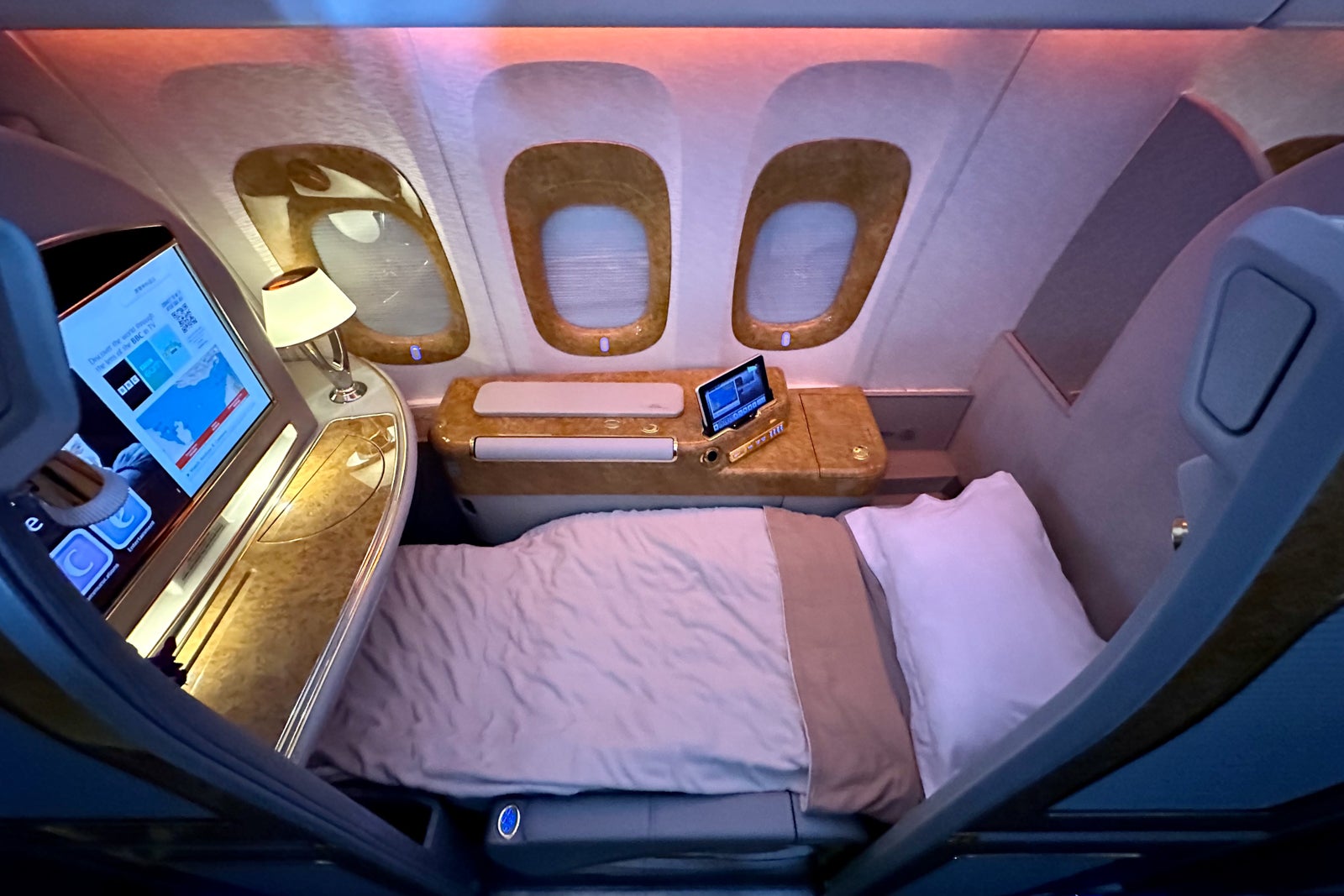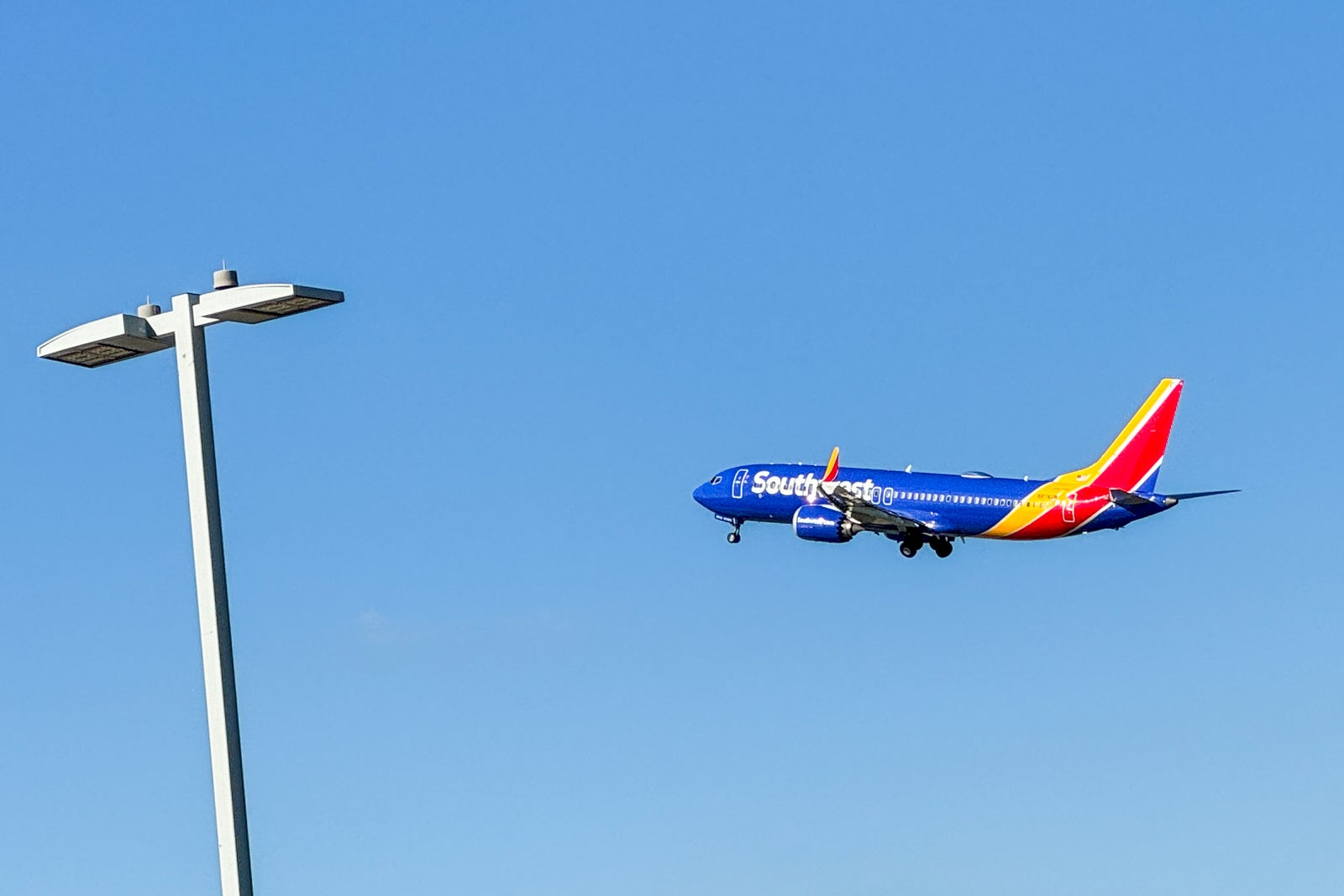Tourism Is The Next Casualty In Trump's Trade War. Our Economy Might Not Recover. | Opinion

A trip to the United States to visit the Las Vegas Strip, a national park like the Grand Canyon, a theme park in Orlando, a cultural experience in New York City or a museum in Washington, D.C., is more than just a fun vacation for participants. Tourism is an essential sector of our economy, one that creates jobs, generates tax revenue and fosters development.
While tourism has experienced a slow recovery from the COVID-19 pandemic, international visitor numbers have almost reached pre-COVID highs. In 2024, more than 72 million tourists visited the United States from overseas.
That recovery, combined with the opportunity to host celebrations of the 250th anniversary of our nation's founding next year, the 2026 World Cup and the 2028 Olympics should position the United States to be a global leader in tourism.
Unfortunately, all that progress and potential are at risk because of the actions of President Donald Trump's administration.
Trade wars with our neighbors, Canada and Mexico, will have devastating consequences for tourism in the United States. These two countries are the biggest markets for inbound travel to our country. In 2024, more than 20 million Canadians and 17 million Mexicans visited the United States.
Not only do tariffs raise costs at home, they also harm the economies of our neighbors, decreasing the likelihood that people can afford to go on vacation. Tariffs will increase the prices and costs of airline tickets, food and accommodations for visitors.
The administration’s recent “Liberation Day” tariffs on the rest of the world dramatically scaled up this problem and will isolate us further. If the president wants to fix the trade balance with other countries, he should encourage international tourism, not strangle it.
Money spent by foreign visitors on goods and services in the United States helps to offset trade deficits.
In addition to the president’s economic warfare, arbitrary questioning and searches, detentions and deportations of international visitors might have caused irreparable damage to our reputation. Customs and Border Protection officers and Immigration and Customs Enforcement agents have taken aggressive actions against those who are visiting the United States on a tourist visa.
Even individuals who have lawful, permanent status are afraid to travel outside the country as they worry that they, or their spouses who may be on a tourist visa, might not be able to get back into the country.
We have seen reports of mobile devices being seized and inspected at points of entry, presumably to scrutinize one’s political opinions.
In response to these actions, countries like Belgium, Canada, Denmark, Finland, France, Germany, Ireland, Netherlands, Portugal and the United Kingdom have updated travel guidance and issued travel warnings to those looking to visit the United States.
These actions follow the president’s rhetoric that insults other countries, violates their sovereignty and embarrasses their leaders. Whether his strong overtures about taking over Canada, Greenland, Gaza or Panama; his dismantling of the U.S. Agency for International Development and assistance programs in countries around the world; his demeaning words toward Europe, Mexico and even Lesotho, the rest of the world is taking notice and responding with their pocketbooks.
Polling from YouGov shows that only 20% of Danes, 29% of Swedes, 32% of Germans, 34% of French, 37% of Britons, 43% of Spaniards and 42% of Italians have a favorable view of the United States. A recent survey in Canada found that only 24% of Canadians have a positive opinion of the United States, down from a high of 72% two decades ago.
As Arwa Mahdawi recently wrote in a column in The Guardian, “You’ll have noticed that Donald Trump’s America hasn’t exactly been rolling out the red carpet for visitors. … Why spend your money in the US, which is threatening to annex its neighbors and rapidly descending into authoritarianism?”
Meanwhile, the administration’s actions domestically are also hurting tourism. Slashing National Park Service staff and operations severely harms one of our nation’s top offerings to tourists, as does cutting funding for museums and other cultural institutions.
Gutting the State Department will worsen the visa wait time crisis facing many countries ahead of the World Cup and the Olympics. U.S. tourism visa wait times are as high as 700 days in Colombia, 560 days in Turkey and 332 days in Morocco. This adds more difficulties for travel for athletes, their families, staff and fans.
Uncertainty regarding a potential travel ban on dozens of countries further adds to the confusion and reluctance to visit the United States by those who may not be banned. The lack of clarity also affects business travel and those who come to the United States for conventions, which require advanced planning.
These actions have long-term consequences as travelers plan their trips months or years in advance. They may now decide not to come at all.
Despite the president's executive order to “strengthen America’s position as a top destination for sports and tourism,” the administration has taken a series of actions that are already harming our status as a top tourist destination. According to the the latest data from the National Travel and Tourism Office, visits to the United States in March fell 9.7% compared with last year.
In Las Vegas, international traffic dropped 19.6% from January to February. Year over year, the number of foreign passengers passing through the 10 busiest airports in the United States is down 18.4%, according to Axios analysis of U.S. Customs and Border Protection data.
All data points to this getting worse as the year progresses. Tourism Economics has already revised its outlook for international travel to the United States from a nearly 9% increase to a 9.4% decrease.
That will be devastating to communities across the country, but especially to Las Vegas. Nationally, the travel and tourism industry supports more than 15 million jobs, $2.9 trillion in economic output and 2.5% of the national gross domestic product.
In Nevada, the hospitality industry accounts for 28% of our state’s employment and 37% of our GDP. In my district, the travel industry supports $1.6 billion in state and local taxes and is the top industry for employment. The Trump administration's policies are putting us in the cross-hairs of a recession.
The president claims to be a world-class hotel, casino and leisure leader, but his outlook and policies toward the rest of the world pose a massive risk to the hospitality industry that employs millions.
During his campaign in Nevada, the president repeatedly made promises to hospitality workers, claiming they would not be taxed on their tips under his administration. What good is no taxes on tips if no one is there to tip in the first place? Or if you have lost your job?
I urge the president to reevaluate how his administration is treating the travel and tourism economy and reverse course. He can start by appointing an assistant secretary for travel and tourism, a position I created in the Visit America Act. We are the only the Group of 20 country without a senior official dedicated to tourism policy.
The president also should endorse my Department of Homeland Security Special Events Program and Support Act to ensure that the federal government can provide security assistance to state and local law enforcement agencies during large-scale events that could attract millions to the United States for decades to come.
If things do not change quickly, there will be permanent damage to the travel and tourism industry and our global reputation, which will be difficult to reverse in the short term.
Rep. Dina Titus, a Democrat, represents Nevada's 1st Congressional District.


